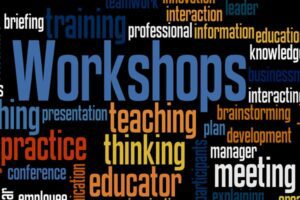
This year we have introduced a workshop strand to the conference. Sessions will be provided by invited groups on topics aligned to the conference theme, which we hope will enrich the conference programme.
Some of these sessions will have limits on attendance; these have been set to ensure quality and, in some cases, safety. Closer to the conference, we will provide information as to how you can sign up to attend these workshops with limited capacity.
The workshops:
Migration, displacement and education – UNESCO Consultation
Convened by Manos Antoninis, Director of the Global Education Monitoring Report
Tuesday 5th September 11.30 – 1.00pm
The 2019 Global Education Monitoring Report will focus on the theme of migration, displacement and education. Voluntary and forced population movements have major implications on access, inclusion, equity and quality in education. They are dynamic processes involving individuals of all ages, teachers, workers, schools, governments at all levels, sending and receiving communities, civil society and the international community. They have spatial and temporal dimensions across generations. They take place within and across borders.
[toggle title_open=”Close” title_closed=”Read more” hide=”yes” border=”yes” style=”default” excerpt_length=”0″ read_more_text=”Read More” read_less_text=”Read Less” include_excerpt_html=”no”]Migration and displacement have a reciprocal relationship with education. On the one hand, they directly affect education and training opportunities of populations that move. On the other hand, education systems can respond to help manage the social and economic impact of population flows.This workshop aims to engage a diverse audience, which is interested in different aspects of the migration/displacement-education nexus, to give their perspective on the key challenges facing education systems dealing with. In particular, for example, how can education systems:
- use migration flows to accelerate progress in access to school?
- prevent any migrants or refugees from left behind and ensure equity?
- improve their quality to ensure they become a vehicle for solidarity and cohesion?
- provide equal opportunities in skills development for youth and adults moving across borders?
protect the right to education of vulnerable forcibly displaced populations?
Two speakers will motivate the discussion and will pose questions to participants to lead to the identification of the key policy challenges facing countries with high migration flows.
This workshop will have limited attendance. Details of how to sign up to this session will be provided closer to the conference date.[/toggle]
Meet the Editors
Tuesday 5th September 2.00 – 3.30pm
This interactive session will provide an opportunity to discuss how some of the leading journals in the field of international development position themselves, what kind of contributions do they seek and the impact that changes in the publishing world, such as open access, are having on these journals, their contributors and readership. The session will consist of a panel of editors from Compare (Tristan McCowan), Journal of Development Education & Global Learning (Clare Bentall), International Journal of Education and Development (Moses Oketch), Comparative Education Review (Robin Shields) and Comparative Education (David Phillips). After a short introduction from each panellist, they will answer questions from the audience.
How to adequately finance education for development?
Facilitators: Dr. Maria Ron Balsera (ActionAid), Jo Walker (Global Campaign for Education), David Archer (ActionAid), Henry Malumo (Global Campaign for Education)
Tuesday 5th September 2.00 – 3.30pm
This workshop will seek to problematise issues related to the lack of resources to adequately finance the public education system. [toggle title_open=”Close” title_closed=”Read more” hide=”yes” border=”yes” style=”default” excerpt_length=”0″ read_more_text=”Read More” read_less_text=”Read Less” include_excerpt_html=”no”]The workshop will explore the following questions:
1. Why is it important to engage with budgets?
2. What are the 4Ss and why are they important?
a. What is the recommended share of the budget?
b. How to increase the size of the budget?
c. Why should the budget be sensitive?
d. Why focus on the scrutiny of the budget and spending?
3. What can be done to improve finance of education?
Case studies will be presented to discuss potential solutions based on increased domestic resource mobilisation through progressive taxation in order to meet the growing financing gap needed to achieve Sustainable Development Goal 4.
The workshop is particularly aimed at government officials and civil society organisations, but everyone is welcome regardless of their knowledge of the subject. We will start with basic concepts and will discuss more advanced topics, including case studies.
This workshop will have limited attendance. Details of how to sign up to this session will be provided closer to the conference date.[/toggle]
What have we learned from running an education system diagnostic, and what could we do differently next time?
Presenters: Lant Pritchett (Harvard Kennedy School), Calum Miller (Blavatnik School of Government, University of Oxford), Clare Leaver (Blavatnik School of Government, University of Oxford), Pauline Rose (University of Cambridge), Tassew Woldehanna (University of Addis Ababae
Tuesday 5th September 4.00 – 5.30pm
The RISE Programme – Research on Improving Systems of Education – aims not only to identify ‘what works’ to improve education systems and ultimately learning for all, but ‘how’ and ‘why’. [toggle title_open=”Close” title_closed=”Read more” hide=”yes” border=”yes” style=”default” excerpt_length=”0″ read_more_text=”Read More” read_less_text=”Read Less” include_excerpt_html=”no”]Four country teams – in India, Pakistan, Tanzania and Vietnam – have this year applied an education system diagnostic. This framework sets out principal-agent relationships (politics, compact, management, voice) together with design elements of these accountability relationships (delegation, financing, information and motivation) to produce a four-by-four diagnostic for systems of basic education. A key insight that emerges is that effectiveness in promoting learning requires systems of education that are coherent. Two more country teams – Indonesia and Ethiopia – will be applying the diagnostic later this year. This is your chance to hear lessons learnt from applying the RISE education system diagnostic, and to engage in how the new teams could interpret and apply it later this year.
This workshop will have limited attendance. Details of how to sign up to this session will be provided closer to the conference date.[/toggle]
Becoming a journal reviewer: exploring comparative perspectives
A Compare journal workshop for reviewers and authors
Wednesday 6th September 8.30 – 10.30am
Workshop facilitators: Prof. Sheila Trahar (University of Bristol and current Co-Editor of Compare: a journal of comparative and international education) and Prof. Anna Robinson-Pant (University of East Anglia and editorial board member of Compare and International Journal of Educational Development)
[toggle title_open=”Close” title_closed=”Read more” hide=”yes” border=”yes” style=”default” excerpt_length=”0″ read_more_text=”Read More” read_less_text=”Read Less” include_excerpt_html=”no”]The aim of this workshop is to investigate institutional practices within comparative education and international education journals published in the Global North that sometimes serve to exclude junior scholars and writers based in the South. We will begin with comparative analysis of and reflection on current reviewing practices from the perspectives of authors, editors and reviewers. We will explore the implications for reviewing and editing: how can reviewers take a ‘situated’ approach to understanding and responding to unfamiliar academic literacy practices, when faced with the challenge of reading and engaging with articles that are anonymised for the peer review process?This workshop is connected with the BAICE-funded Writing for Compare programme, which was set up in 2007 by Theresa Lillis, Anna Magyar and Anna Robinson-Pant (then editor) as a way of addressing inequalities in publishing.
We welcome reviewers from Compare and other journals in this field, including editors and reviewers of institutional and national journals based in the Global South. The workshop will also provide an opportunity for published authors who would like to become a journal reviewer to find out more about what is involved.
This workshop will have limited attendance. Details of how to sign up to this session will be provided closer to the conference date.[/toggle]
Masterclass with 2017 Global Teacher Prize top ten finalist
Mike Wamaya, AnnosAfrica/One Fine Day
Sponsored by the British Association for International and Comparative Education (BAICE)
Wednesday 6th September 11.30 – 12.30pm
The Global Teacher Prize is awarded by the Varkey Foundation with the aim of highlighting the importance of educators. It acknowledges the fact that, throughout the world, their efforts deserve to be recognised and celebrated. It seeks to acknowledge the impacts of the very best teachers – not only on their students but on the communities around them.
[toggle title_open=”Close” title_closed=”Read more” hide=”yes” border=”yes” style=”default” excerpt_length=”0″ read_more_text=”Read More” read_less_text=”Read Less” include_excerpt_html=”no”]Mike Wamaya, top ten finalist for the Global Teacher Prize this year, will present a ‘masterclass’, providing insights into his inspiring work as a teacher of ballet to disadvantaged children in Kibera slums in Nairobi, Kenya. An important aspect of his success is the combination of the teaching of dance skills with social skills, which is recognised to have also had a positive effect on students’ wider academic work. Mike will combine these insights with a practical lesson for participants on his teaching approach. Come prepared to dance!This workshop will have limited attendance. Details of how to sign up to this session will be provided closer to the conference date.[/toggle]
How to package, present and deliver your research to the media
Wednesday 6th September 1.30 – 3.00pm
Most international development research projects aim to go far beyond influencing academic debate – they seek to inform policy and practice, leading to the creation of better, fairer societies. Contributing to this kind of impact requires engaging with a broad range of non-academic audiences to ensure research is shared and used to inform change.
[toggle title_open=”Close” title_closed=”Read more” hide=”yes” border=”yes” style=”default” excerpt_length=”0″ read_more_text=”Read More” read_less_text=”Read Less” include_excerpt_html=”no”]The Impact Initiative for International Development Research (www.theimpactinitative.net) established by the Economic and Social Research Council (ESRC) and Department for International Development (DFID) in 2015 aims to support the overall impact of projects funded within the ESRC-DFID Strategic Partnership – a programme which commissions policy-relevant research on what works to improve learning at scale.The Impact Initiative works on the basis of evidence about how to get research into policy/programming. It does so, for example, through activities which strengthen linkages between grantees and policy/practitioner networks, and by providing expert resources, advice and guidance about research communications and impact strategies.
Organised by the Impact Initiative, this workshop will offer expert insights from top BBC, Guardian and Press Association education journalists on how to use the media to maximise engagement and impact. We’ll be asking them: Under what circumstances should researchers be trying to get their work published in the press, and how can they make the most effective use of this?
They will share their thoughts on what kinds of research journalists want to publish, how researchers can avoid misrepresentation, as well as offering tips on how to write a good press release and communicate research to non-expert audiences. There will be an opportunity to pitch research and receive feedback, so come prepared.
This workshop will have limited attendance. Details of how to sign up to this session will be provided closer to the conference date. [/toggle]
Early career workshop
Thursday 7th September 8.30 – 10.00am
What are the big issues that the next generation of education and international development professionals will tackle in order to drive change in education?
[toggle title_open=”Close” title_closed=”Read more” hide=”yes” border=”yes” style=”default” excerpt_length=”0″ read_more_text=”Read More” read_less_text=”Read Less” include_excerpt_html=”no”]Governments and development partners often have their own aims and objectives of what they think needs prioritising and investing, this is often based on the needs of the sector and also the availability of evidence. However, at times professionals working in the industry are often frustrated with how priorities are set and often they present their case as to why their area of work should receive greater prioritisation.To relive your frustrations, this workshop will provide an opportunity for early career professionals to collaborate and problem-solve around some of the big issues in the future of education development. The workshop will begin with a networking activity to provide time for early career professionals to get to know others in the sector. It will be followed by a problem-solving activity where participants will work in teams to address some of the major challenges. The session will allow participants to innovate, contribute their own experiences and build relationships with others in the sector.
Details of how to sign up to this session will be provided closer to the conference date.[/toggle]
Using student outcome data at local and national level: What can we learn?
Thursday 7th September 11.00 – 12.30
Martin Kaliszewski and Astrid Fieldsend of the Education Development Trust are using their combined educational experience to write a thinkpiece on England’s use of data and the lessons that can be learned, and invite you to contribute and shape this work.[toggle title_open=”Close” title_closed=”Read more” hide=”yes” border=”yes” style=”default” excerpt_length=”0″ read_more_text=”Read More” read_less_text=”Read Less” include_excerpt_html=”no”] This interactive workshop would appeal to educationalists who have an interest in or experience of student outcomes data and who would be willing to draw on those experiences, sharing their thoughts on interesting practice and pitfalls.
Martin and Astrid will share some of their findings and welcome thoughts on areas such as:
1. How governments and ministers use performance indicators to drive behaviour change and school improvement;
2. How schools can use platforms such as RAISEonline (the national educational data management system for schools in England) for practical use and improvement;
3. How perverse incentives and gaming may arise from such a data-rich, high-stakes environment.
Convenors: Martin has spent the best part of the last decade contracted from Education Development Trust to the Department for Education to work on the design and development of RAISEonline as well as having taught for over 20 years in a variety of schools. Astrid is an experienced former teacher and senior leader, working in challenging schools in inner-city London.
This workshop will have limited attendance. Details of how to sign up to this session will be provided closer to the conference date.[/toggle]
Insights from Malala Fund’s Gulmakai Champions on Supporting Girls’ Secondary Education in Conflict Settings
Convened by the Malala Fund
Introduced by Ziauddin Yousafzai
Thursday 7th September 2.00 – 3.30pm
This workshop will explore challenges to education in conflict settings and why and how local education advocates can be a critical tool to increase participation by all girls in a full course of quality education, especially at the post-primary level. The workshop will feature contributions from local education champions from Malala Fund’s Gulmakai Network in Pakistan, Afghanistan, Nigeria and the Syria Region. [toggle title_open=”Close” title_closed=”Read more” hide=”yes” border=”yes” style=”default” excerpt_length=”0″ read_more_text=”Read More” read_less_text=”Read Less” include_excerpt_html=”no”]There will be an opportunity for participants to engage in small group discussions led by the Gulmakai Champions around the following questions:
- What are the main opportunities for local advocacy that could lead to real impact for girls’ education in conflict or post conflict settings in the country or region where you live or work?
- What partnerships are needed to enhance the impact of locally-led advocacy in a conflict or post-conflict context? What models of coordination have you seen work well between different actors in a humanitarian education context?
- Can grassroots and top-down pressure be combined for greater impact/progress?
The workshop will conclude with presentations from each group summarising opportunities to more effectively use advocacy to improve girls’ secondary education in conflict and post-conflict settings.
This workshop will have limited attendance. Details of how to sign up to this session will be provided closer to the conference date.[/toggle]

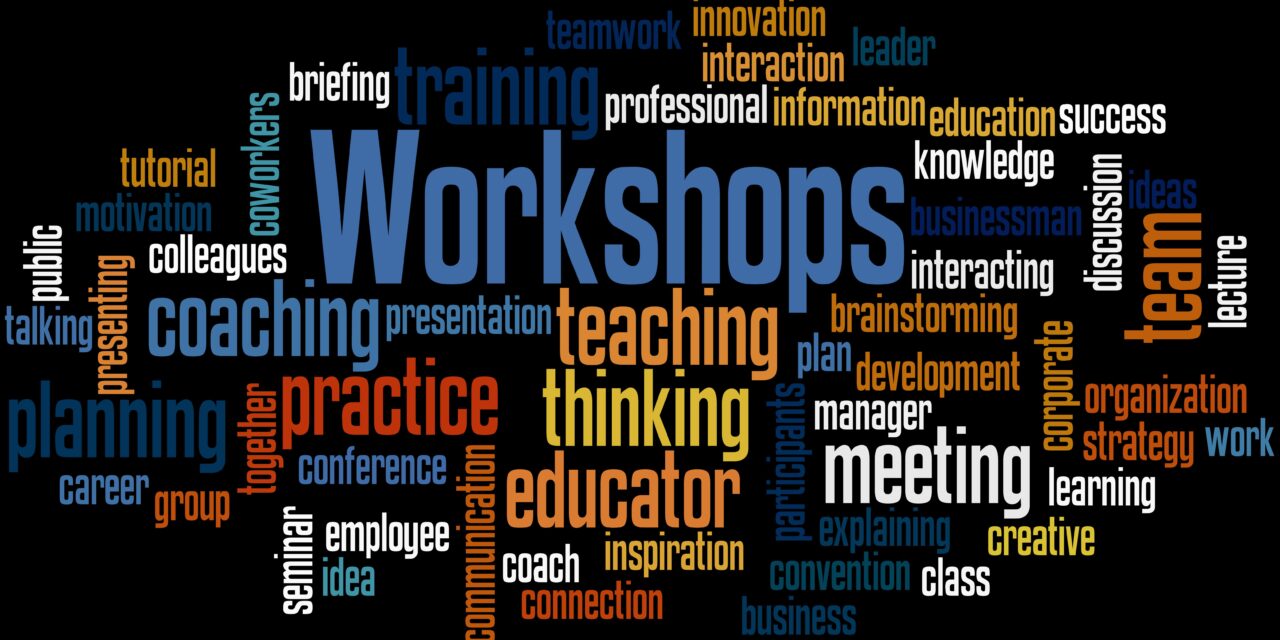
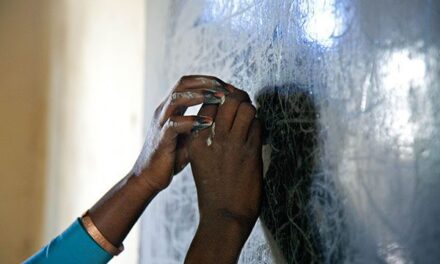
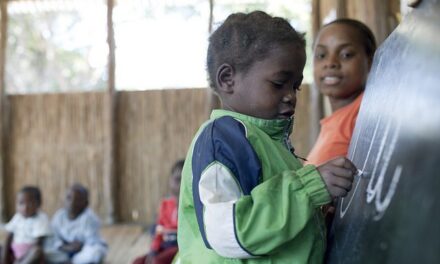
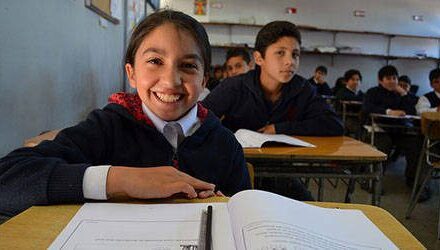
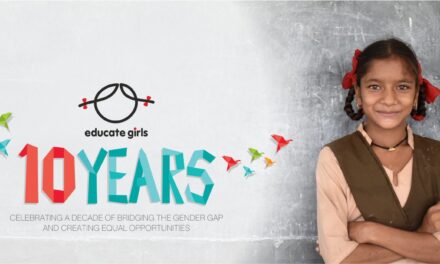
I Like the workshop themes, They have been carefully selected to really inform contemporary needs for education development.